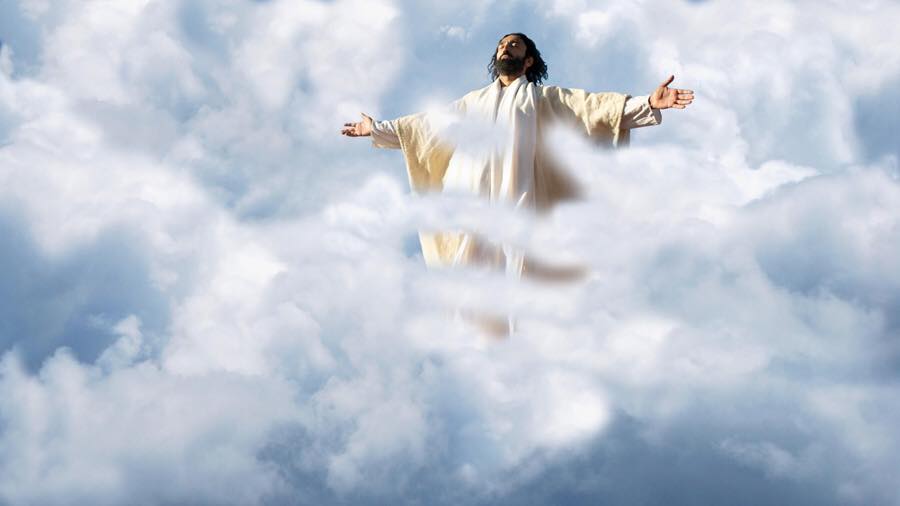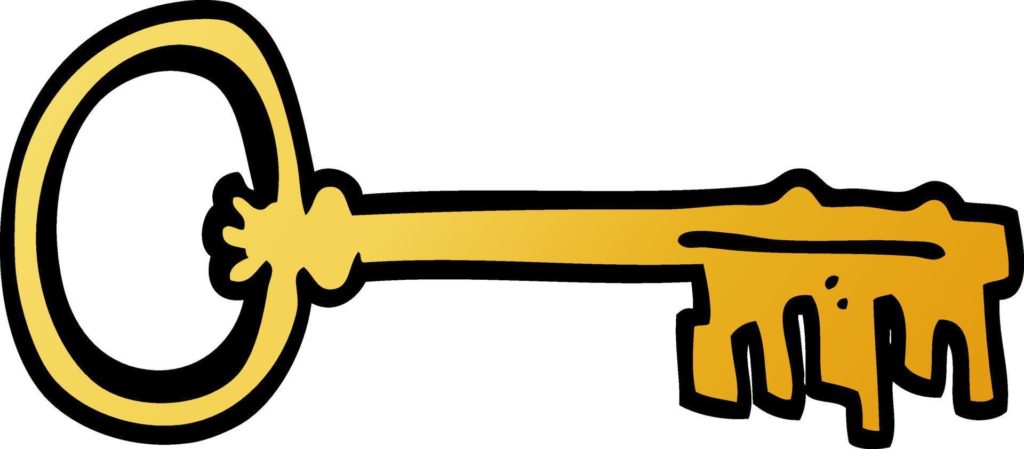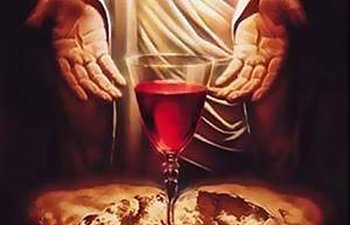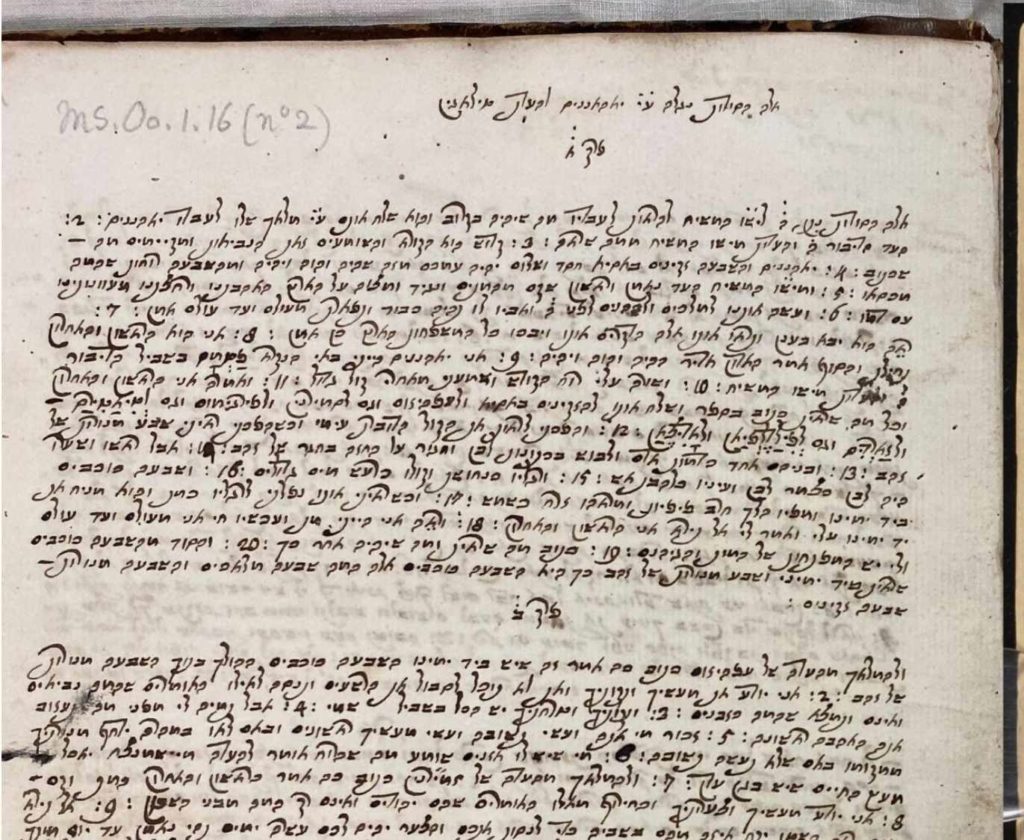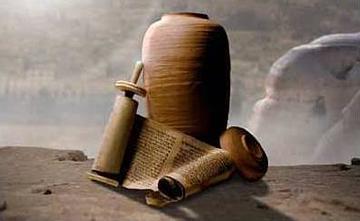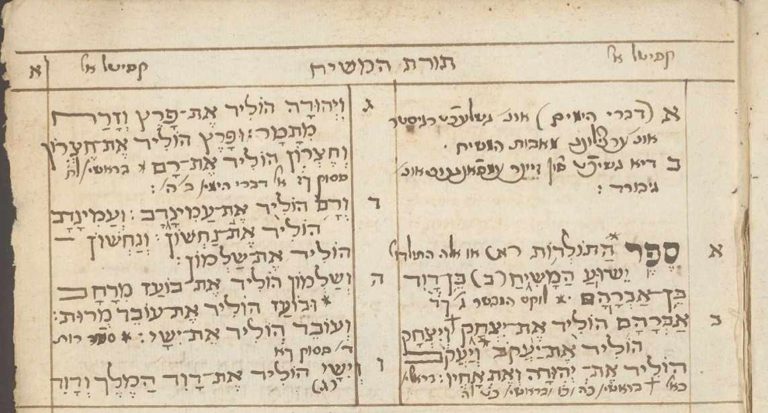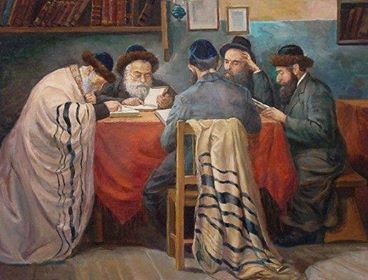
The Ancient Nazarene Sanhedrin and the Talmud
By
James Scott Trimm
We read in the Torah:
Judges and officers shall you make you in all your gates, which YHWH your Elohim gives you, tribe by tribe. And they shall judge the people with righteous judgment.
(Deut. 16:18 HRV)
8 If there arise a matter too hard for you in judgment, between blood and blood, between plea and plea, and between stroke and stroke–even matters of controversy within your gates–then shall you arise, and get you up unto the place which YHWH your Elohim shall choose.
9 And you shall come unto the cohanim, the L’vi’im, and unto the judge that shall be in those days, and you shall inquire. And they shall declare unto you the sentence of judgment.
10 And you shall do, according to the tenor of the sentence, which they shall declare unto you from that place which YHWH shall choose, and you shall observe to do according to all that they shall teach you.
11 According to the Torah which they shall teach you, and according to the judgment which they shall tell you, you shall do. You shall not turn aside from the sentence which they shall declare unto you, to the right hand nor to the left.
12 And the man that does presumptuously, in not hearkening unto the cohen, that stands to minister there before YHWH your Elohim, or unto the judge, even that man shall die, and you shall exterminate the evil from Yisra’el.
(Deut. 17:8-12 HRV)
The phrase “According to the Torah” in the Hebrew is על פי התורה which could literally be translated “according to the Oral Torah”. The word על means “about, concerning, according to”; the word פי means “mouth” or “oral”. and the word התורה means “the Torah”. This phrase is the source of the Hebrew phrase תורה שבעל פה “Oral Law” (פי is the construct form of פה). (There are two kinds of Oral Law: Oral Law from Sinai and these Judgments of the Court.)
This sheds light on an event recorded by Matthew:
15 And Yeshua said to them: And you … who say you, that I am?
16 Then answered Shim’on Kefa, saying, You are Messiah, the Son of the Living Elohim.
17 And Yeshua said to him: Happy are you Shim’on Ben Yonah, for this was not revealed to flesh and blood
but to you, when it was revealed to you by My Father which is in heaven.
18 And I tell you, that you are Kefa, and upon this rock I will build My assembly, and the gates of takh’ti will not prevail against you.
19 And to you will I give the keys of the Kingdom of Heaven, and whatever you shall prohibit on earth, shall be prohibited in heaven: and whatever you will permit on earth, has been permitted in heaven.
(Matthew 16:15-19 from DuTillet Hebrew)
The “Assembly” here refers the judges of the Torah court. Kefa is said to be given the “keys” because he is being appointed to the office of Av Beit Din (The Av Beit Din controlled who could enter the court and was said to hold the “keys”) . The Torah courts were headed by two individuals, a Nasi (president) and Av Beit Din (vice-president and sergeant of arms.) The words “prohibit” (אסור) and “permit” (מותר) are literally “bind” and “loose” and are idiomatic expressions in Hebrew used to refer to the authority of the judges to prohibit and permit activities.
We can see that this is the “assembly” to which Yeshua refers, by comparing with Matthew 18:
15 And if your brother sins against you, go and reprove him between you and him alone: and if he will hear you, you have won your brother.
16 But if he will not hear you, take to yourself one witness or two: that at the mouth of two or three witnesses, every word may be established.
17 And if he will not hear them, speak to him in the assembly: but if he neglects to hear in the assembly, let him be to you as a Goy or a transgressor.
18 Truly I tell you, all that you will prohibit on earth has been prohibited in heaven also, and all that you will permit on earth has been permitted in heaven also.
19 Again I tell you: If two of you might be worthy566 on earth567 as touching a thing that they will ask, it will be for them of My Father which is in heaven.
20 For in every place where two or three will assemble in My Name, there am I in the midst of them.
(Matthew 18:15-20 from DuTillet Hebrew)
Here again we see this “assembly” which has the power to “prohibit” (bind) and “permit” (loose). This time we see it in context of an assembly which receives the testimony of which “at the mouth of two or three witnesses, every word may be established.” quoting Deut. 19:15:
15 One witness shall not rise up against a man for any iniquity, or for any sin, in any sin that he sins. At the mouth of two witnesses, or at the mouth of three witnesses, shall a matter be established.
16 If an unrighteous witness rise up against any man, to bear perverted witness against him,
17 Then both the men, between whom the controversy is, shall stand before YHWH; before the cohanim and the judges that shall be in those days.
18 And the judges shall inquire diligently: and behold, if the witness be a false witness, and has testified falsely against his brother,
(Deut. 19:15-18 HRV)
This is the same “judges that shall be in those days” (Deut. 19:17) that we read about earlier in Deut 17:9 who give rulings that are על פי התורה i.e. תורה שבעל פה “Oral Law”.
In other words, Yeshua as Messiah designated his Emissaries as the “judges that shall be in those days” i.e. a Nazarene Sanhedrin.
We see this body meet, consider and make such a ruling In Acts 15. Here the Emissaries consider a matter of halacha (must gentiles be circumcised to be saved). We see that Ya’akov HaTzadik (James the Just) is presiding as Nasi, and Kefa is acting as Av Beit Din.
Having established that Yeshua transferred the authority to “bind and loose” to the Nazarene Sanhedrin somewhere around 30 C.E. Where do we as Nazarenes draw the line between rulings that we generally accept on the authority of the court prior to that time, verses after that time? This matter is made simple by history.
I have said many times that Yeshua was a teacher of the School of Hillel, and that Yeshua agreed with the school of Hillel in most of his teachings (the matter of cause for divorce being an unusual exception.) Hillel served as Nasi until about 10 CE when his son Shimon became Nasi. Hillel’s son Shimon was almost certainly the Shimon that blessed the infant Yeshua (Luke 2:25-35) Shimon served as Nasi from around 10 CE to about 20 CE when his son Gamaliel became Nasi. (This Pharisaic Sanhedrin should not be connfused by a Political Sanhedrin by the same name, headed by the High Priest, which convicted Yeshua). Interestingly the Rabbinic literature preserves very little information about Shimon, and not one of the rulings of the Sanhedrin under his leadership. This creates a convenient buffer zone for Nazarene Judaism. Rulings of the Torah Courts up thru and including the Court of Hillel are binding (unless they come into direct conflict with a ruling by Yeshua and the Emissaries, in which case we have a case of Horayot (errant rulings) as is the case with the question of legitimate cause for divorce.
However with the Pharisaic and Rabbinic Rulings of the Pharisaic Sanhedrin and Rabbinic Sages beginning with Gamaliel, we should not reject them out of hand, but scrutinize them. Fortunately the Talmuds (which contain the rulings and deliberations of these courts and later Rabbinic sages) lay out the logic of the arguments and preserve the minority opinions, even exploring the logic and nuances of the minority views to their fullest conclusion.
We can then analyze these arguments in light of the methodology Yeshua and the Emissaries used in making halachic determinations. (I have written a detailed analysis of this methodology which you can read by clicking here.)
I am often asked if Nazarenes should “keep the Talmud”. The answer is that the Talmud is not “kept” it is studied. Here we as Nazarenes can certainly follow the admonition of the late Talmud Scholar Adin Steinsaltz:
Voicing doubts is not only legitimate in the Talmud, it is essential to study. To a certain degree, the rule is that any type of query is permissible even desirable; the more the merrier. No inquiry is regarded as unfair or incorrect as long as it pertains to the issue and can cast light on some aspect of it. This is true not only of the Talmud itself but also of the way in which it is studied and perused. After absorbing the basic material, the student is expected to pose questions to himself and to others and to voice doubts and reservations. From this point of view, the Talmud is perhaps the only sacred book in all of world culture that permits and even encourages the student to question it.
(The Essential Talmud by Adin Steinsaltz p. 8)

I need your support to continue this work! Donations are low and expenses are up. If donations don’t pick up very quickly, we are going to find ourselves homeless. I cannot make it any plainer than that. The restoration is upon us! But the Enemy will stop at nothing in his attacks! I am asking for your help, now more than ever.
We need your help to continue the ongoing work, bringing the message of Messiah to the Jewish people, and bringing the message of Torah to the world. We need your help with the ongoing work of Scripture Restoration, as restore the original Hebrew of the “New Testament” books, a project which will bless all mankind, especially the Jewish people of Israel.
In these uncertain times, we need your support more than ever. The time is short, and there is much work to be done. As you might imagine, donations are low. If you can, please donate. This is no time to pull back from the great work in front of us!
As I have said to you many times, I look on this work as a co-operative one with me, and all of you combining our resources together in order to get the job done of helping to teach this great truth to all in the world who will listen. Thank you so much from the bottom of my heart for your continued support, you are the ones who make it all possible by your contributions and your prayers for our work. I truly appreciate your help in every way.
If you can make a one time donation of $500 or $1,000 dollars to support this work.

